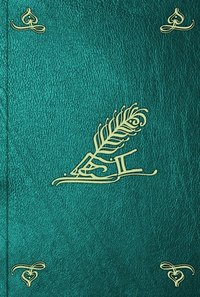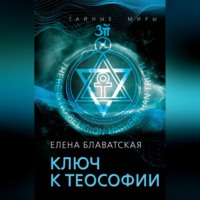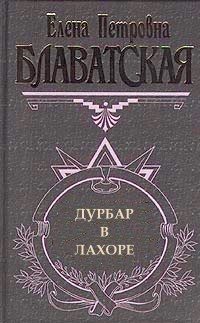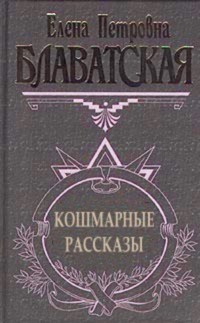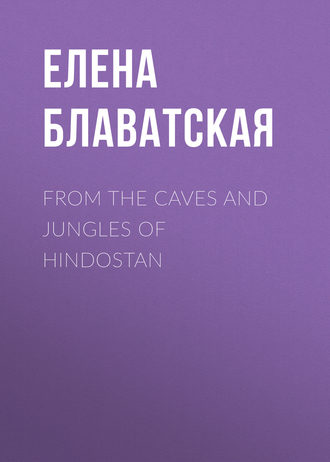 полная версия
полная версияFrom the Caves and Jungles of Hindostan
At last, having examined the family chapel, full of idols, flowers, rich vases with burning incense, lamps hanging from its ceiling, and aromatic herbs covering its floor, we decided to get ready for dinner. We carefully washed ourselves, but this was not enough, we were requested to take off our shoes. This was a somewhat disagreeable surprise, but a real Brahmanical supper was worth the trouble.
However, a truly amazing surprise was still in store for us.
On entering the dining-room we stopped short at the entrance—both our European companions were dressed, or rather undressed, exactly like Hindus! For the sake of decency they kept on a kind of sleeveless knitted vest, but they were barefooted, wore the snow-white Hindu dhutis (a piece of muslin wrapped round to the waist and forming a petticoat), and looked like something between white Hindus and Constantinople garcons de bains. Both were indescribably funny, I never saw anything funnier. To the great discomfiture of the men, and the scandal of the grave ladies of the house, I could not restrain myself, but burst out laughing. Miss X–blushed violently and followed my example.
A quarter of an hour before the evening meal every Hindu, old or young, has to perform a "puja" before the gods. He does not change his clothes, as we do in Europe, but takes off the few things he wore during the day. He bathes by the family well and loosens his hair, of which, if he is a Mahratti or an inhabitant of the Dekkan, he has only one long lock at the top of his shaven head. To cover the body and the head whilst eating would be sinful. Wrapping his waist and legs in a white silk dhuti, he goes once more to salute the idols and then sits down to his meal.–
But here I shall allow myself to digress. "Silk possesses the property of dismissing the evil spirits who inhabit the magnetic fluids of the atmosphere," says the Mantram, book v., verse 23. And I cannot help wondering whether this apparent superstition may not contain a deeper meaning. It is difficult, I own, to part with our favorite theories about all the customs of ancient heathendom being mere ignorant superstitions. But have not some vague notions of these customs being founded originally on a true knowledge of scientific principles found their way amongst European scientific circles? At first sight the idea seems untenable. But why may we not suppose that the ancients prescribed this observance in the full knowledge that the effect of electricity upon the organs of digestion is truly beneficial? People who have studied the ancient philosophy of India with a firm resolve to penetrate the hidden meaning of its aphorisms have for the most part grown convinced that electricity and its effects were known to a considerable extent to some philosophers, as, for instance, to Patanjali. Charaka and Sushruta had pro-pounded the system of Hippocrates long before the time of him who in Europe is supposed to be the "father of medicine." The Bhadrinath temple of Vishnu possesses a stone bearing evident proof of the fact that Surya-Sidhanta knew and calculated the expansive force of steam many centuries ago. The ancient Hindus were the first to determine the velocity of light and the laws of its reflection; and the table of Pythagoras and his celebrated theorem of the square of hypotenuse are to be found in the ancient books of Jyotisha. All this leads us to suppose that ancient Aryans, when instituting the strange custom of wearing silk during meals, had something serious in view, more serious, at all events, than the "dismissing of demons."
Having entered the "refectory," we immediately noticed what were the Hindu precautions against their being polluted by our presence. The stone floor of the hall was divided into two equal parts. This division consisted of a line traced in chalk, with Kabalistic signs at either end. One part was destined for the host's party and the guests belonging to the same caste, the other for ourselves. On our side of the hall there was yet a third square to contain Hindus of a different caste. The furniture of the two bigger squares was exactly similar. Along the two opposite walls there were narrow carpets spread on the floor, covered with cushions and low stools. Before every occupant there was an oblong on the bare floor, traced also with chalk, and divided, like a chess board, into small quadrangles which were destined for dishes and plates. Both the latter articles were made of the thick strong leaves of the butea frondosa: larger dishes of several leaves pinned together with thorns, plates and saucers of one leaf with its borders turned up. All the courses of the supper were already arranged on each square; we counted forty-eight dishes, containing about a mouthful of forty-eight different dainties. The materials of which they were composed were mostly terra incognita to us, but some of them tasted very nice. All this was vegetarian food. Of meat, fowl, eggs and fish there appeared no traces. There were chutneys, fruit and vegetables preserved in vinegar and honey, panchamrits, a mixture of pampello-berries, tamarinds, cocoa milk, treacle and olive oil, and kushmer, made of radishes, honey and flour; there were also burning hot pickles and spices. All this was crowned with a mountain of exquisitely cooked rice and another mountain of chapatis, which are something like brown pancakes. The dishes stood in four rows, each row containing twelve dishes; and between the rows burned three aromatic sticks of the size of a small church taper. Our part of the hall was brightly lit with green and red candles. The chandeliers which held these candles were of a very queer shape. They each represented the trunk of a tree with a seven-headed cobra wound round it. From each of the seven mouths rose a red or a green wax candle of spiral form like a corkscrew. Draughts blowing from behind every pillar fluttered the yellow flames, filling the roomy refectory with fantastic moving shadows, and causing both our lightly-clad gentlemen to sneeze very frequently. Leaving the dark silhouettes of the Hindus in comparative obscurity, this unsteady light made the two white figures still more conspicuous, as if making a masquerade of them and laughing at them.
The relatives and friends of our host came in one after the other. They were all naked down to the waist, all barefooted, all wore the triple Brahmanical thread and white silk dhutis, and their hair hung loose. Every sahib was followed by his own servant, who carried his cup, his silver, or even gold, jug filled with water, and his towel. All of them, having saluted the host, greeted us, the palms of their hands pressed together and touching their foreheads, their breasts, and then the floor. They all said to us: "Ram-Ram" and "Namaste" (salutation to thee), and then made straight for their respective seats in perfect silence. Their civilities reminded me that the custom of greeting each other with the twice pronounced name of some ancestor was usual in the remotest antiquity.
We all sat down, the Hindus calm and stately, as if preparing for some mystic celebration, we ourselves feeling awkward and uneasy, fearing to prove guilty of some unpardonable blunder. An invisible choir of women's voices chanted a monotonous hymn, celebrating the glory of the gods. These were half a dozen nautch-girls from a neighboring pagoda. To this accompaniment we began satisfying our appetites. Thanks to the Babu's instructions, we took great care to eat only with our right hands. This was somewhat difficult, because we were hungry and hasty, but quite necessary. Had we only so much as touched the rice with our left hands whole hosts of Rakshasas (demons) would have been attracted to take part in the festivity that very moment; which, of course, would send all the Hindus out of the room. It is hardly necessary to say that there were no traces of forks, knives or spoons. That I might run no risk of breaking the rule I put my left hand in my pocket and held on to my pocket-handkerchief all the time the dinner lasted.
The singing lasted only a few minutes. During the rest of the time a dead silence reigned amongst us. It was Monday, a fast day, and so the usual absence of noise at meal times had to be observed still more strictly than on any other day. Usually a man who is compelled to break the silence by some emergency or other hastens to plunge into water the middle finger of his left hand, which till then had remained hidden behind his back, and to moisten both his eyelids with it. But a really pious man would not be content with this simple formula of purification; having spoken, he must leave the dining-room, wash thoroughly, and then abstain from food for the remainder of the day.
Thanks to this solemn silence, I was at liberty to notice everything that was going on with great attention. Now and again, whenever I caught sight of the colonel or Mr. Y–, I had all the difficulty in the world to preserve my gravity. Fits of foolish laughter would take possession of me when I observed them sitting erect with such comical solemnity and working so awkwardly with their elbows and hands. The long beard of the one was white with grains of rice, as if silvered with hoar-frost, the chin of the other was yellow with liquid saffron. But unsatisfied curiosity happily came to my rescue, and I went on watching the quaint proceedings of the Hindus.
Each of them, having sat down with his legs twisted under him, poured some water with his left hand out of the jug brought by the servant, first into his cup, then into the palm of his right hand. Then he slowly and carefully sprinkled the water round a dish with all kinds of dainties, which stood by itself, and was destined, as we learned afterwards, for the gods. During this procedure each Hindu repeated a Vedic mantram. Filling his right hand with rice, he pronounced a new series of couplets, then, having stored five pinches of rice on the right side of his own plate, he once more washed his hands to avert the evil eye, sprinkled more water, and pouring a few drops of it into his right palm, slowly drank it. After this he swallowed six pinches of rice, one after the other, murmuring prayers all the while, and wetted both his eyes with the middle finger of his left hand. All this done, he finally hid his left hand behind his back, and began eating with the right hand. All this took only a few minutes, but was performed very solemnly.
The Hindus ate with their bodies bent over the food, throwing it up and catching it in their mouths so dexterously that not a grain of rice was lost, not a drop of the various liquids spilt. Zealous to show his consideration for his host, the colonel tried to imitate all these movements. He contrived to bend over his food almost horizontally, but, alas! he could not remain long in this position. The natural weight of his powerful limbs overcame him, he lost his balance and nearly tumbled head foremost, dropping his spectacles into a dish of sour milk and garlic. After this unsuccessful experience the brave American gave up all further attempts to become "Hinduized," and sat very quietly.
The supper was concluded with rice mixed with sugar, powdered peas, olive oil, garlic and grains of pomegranate, as usual. This last dainty is consumed hurriedly. Everyone nervously glances askance at his neighbor, and is mortally afraid of being the last to finish, because this is considered a very bad sign. To conclude, they all take some water into their mouths, murmuring prayers the while, and this time they must swallow it in one gulp. Woe to the one who chokes! 'Tis a clear sign that a bhuta has taken possession of his throat. The unfortunate man must run for his life and get purified before the altar.
The poor Hindus are very much troubled by these wicked bhutas, the souls of the people who have died with ungratified desires and earthly passions. Hindu spirits, if I am to believe the unanimous assertions of one and all, are always swarming round the living, always ready to satisfy their hunger with other people's mouths and gratify their impure desires with the help of organs temporarily stolen from the living. They are feared and cursed all over India. No means to get rid of them are despised. The notions and conclusions of the Hindus on this point categorically contradict the aspirations and hopes of Western spiritualists.
"A good and pure spirit, they are confident, will not let his soul revisit the earth, if this soul is equally pure. He is glad to die and unite himself to Brahma, to live an eternal life in Svarga (heaven) and enjoy the society of the beautiful Gandharvas or singing angels. He is glad to slumber whole eternities, listening to their songs, whilst his soul is purified by a new incarnation in a body, which is more perfect than the one the soul abandoned previously."
The Hindus believe that the spirit or Atma, a particle of the GREAT ALL, which is Parabrahm, cannot be punished for sins in which it never participated. It is Manas, the animal intelligence, and the animal soul or Jiva, both half material illusions, that sin and suffer and transmigrate from one body into the other till they purify themselves. The spirit merely overshadows their earthly transmigrations. When the Ego has reached the final state of purity, it will be one with the Atma, and gradually will merge and disappear in Parabrahm.
But this is not what awaits the wicked souls. The soul that does not succeed in getting rid of earthly cares and desires before the death of the body is weighed down by its sins, and, instead of reincarnating in some new form, according to the laws of metempsychosis, it will remain bodiless, doomed to wander on earth. It will become a bhuta, and by its own sufferings will cause unutterable sufferings to its kinsmen. That is why the Hindu fears above all things to remain bodiless after his death.
"It is better for one to enter the body of a tiger, of a dog, even of a yellow-legged falcon, after death, than to become a bhuta!" an old Hindu said to me on one occasion. "Every animal possesses a body of his own and a right to make an honest use of it. Whereas the bhutas are doomed dakoits, brigands and thieves, they are ever watching for an opportunity to use what does not belong to them. This is a horrible state—a horror indescribable. This is the true hell. What is this spiritualism they talk so much of in the West? Is it possible the intelligent English and Americans are so mad as this?"
And all our remonstrances notwithstanding, he refused to believe that there are actually people who are fond of bhutas, who would do much to attract them into their homes.
After supper the men went again to the family well to wash, and then dressed themselves.
Usually at this hour of the night the Hindus put on clean malmalas, a kind of tight shirt, white turbans, and wooden sandals with knobs pressed between the toes. These curious shoes are left at the door whilst their owners return to the hall and sit down along the walls on carpets and cushions to chew betel, smoke hookahs and cheroots, to listen to sacred reading, and to witness the dances of the nautches. But this evening, probably in our honor, all the Hindus dressed magnificently. Some of them wore darias of rich striped satin, no end of gold bangles, necklaces mounted with diamonds and emeralds, gold watches and chains, and transparent Brahmanical scarfs with gold embroidery. The fat fingers and the right ear of our host were simply blazing with diamonds.
The women, who waited on us during the meal, disappeared afterwards for a considerable time. When they came back they also were luxuriously overdressed and were introduced to us formally as the ladies of the house. They were five: the wife of the host, a woman of twenty-six or twenty-seven years of age, then two others looking somewhat younger, one of whom carried a baby, and, to our great astonishment, was introduced as the married daughter of the hostess; then the old mother of the host and a little girl of seven, the wife of one of his brothers. So that our hostess turned out to be a grandmother, and her sister-in-law, who was to enter finally into matrimony in from two to three years, might have become a mother before she was twelve. They were all barefooted, with rings on each of their toes, and all, with the exception of the old woman, wore garlands of natural flowers round their necks and in their jet black hair. Their tight bodices, covered with embroidery, were so short that between them and the sari there was a good quarter of a yard of bare skin. The dark, bronze-coloured waists of these well-shaped Women were boldly presented to any one's examination and reflected the lights of the room. Their beautiful arms and their ankles were covered with bracelets. At the least of their movements they all set up a tinkling silvery sound, and the little sister-in-law, who might easily be mistaken for an automaton doll, could hardly move under her load of ornaments. The young grandmother, our hostess, had a ring in her left nostril, which reached to the lower part of the chin. Her nose was considerably disfigured by the weight of the gold, and we noticed how unusually handsome she was only when she took it off to enable herself to drink her tea with some comfort.
The dances of the nautch girls began. Two of them were very pretty. Their dancing consisted chiefly in more or less expressive movements of their eyes, their heads, and even their ears, in fact, of the whole upper part of their bodies. As to their legs, they either did not move at all or moved with such a swiftness as to appear in a cloud of mist.
After this eventful day I slept the sleep of the just.
After many nights spent in a tent, it is more than agreeable to sleep in a regular bed, even if it is only a hanging one. The pleasure would, no doubt, have been considerably increased had I but known I was resting on the couch of a god. But this latter circumstance was revealed to me only in the morning, when descending the staircase I suddenly discovered the poor general en chef, Hanuman, deprived of his cradle and unceremoniously stowed away under the stairs. Decidedly, the Hindus of the nineteenth century are a degenerate and blaspheming race!
In the course of the morning we learned that this swinging throne of his, and an ancient sofa, were the only pieces of furniture in the whole house that could be transformed into beds.
Neither of our gentlemen had spent a comfortable night. They slept in an empty tower that was once the altar of a decayed pagoda and was situated behind the main building. In assigning to them this strange resting place, the host was guided by the praiseworthy intention of protecting them from the jackals, which freely penetrate into all the rooms of the ground floor, as they are pierced by numberless arches and have no door and no window frames. The jackals, however, did not trouble the gentlemen much that night, except by giving their nightly concert. But both Mr. Y– and the colonel had to fight all the night long with a vampire, which, besides being a flying fox of an unusual size, happened to be a spirit, as we learned too late, to our great misfortune.
This is how it happened. Noiselessly hovering about the tower, the vampire from time to time alighted on the sleepers, making them shudder under the disgusting touch of his cold sticky wings. His intention clearly was to get a nice suck of European blood. They were wakened by his manipulations at least ten times, and each time frightened him away. But, as soon as they were dozing again, the wretched bat was sure to return and perch on their shoulders, heads, or legs. At last Mr. Y–, losing patience, had recourse to strong measures; he caught him and broke his neck.
Feeling perfectly innocent, the gentlemen mentioned the tragic end of the troublesome flying fox to their host, and instantly drew down on their heads all the thunder-clouds of heaven.
The yard was crowded with people. All the inhabitants of the house stood sorrowfully drooping their heads, at the entrance of the tower. Our host's old mother tore her hair in despair, and shrieked lamentations in all the languages of India. What was the matter with them all? We were at our wits' end. But when we learned the cause of all this, there was no limit to our confusion.
By certain mysterious signs, known only to the family Brahman, it had been decided ten years ago that the soul of our host's elder brother had incarnated in this blood-thirsty vampire-bat. This fact was stated as being beyond any doubt. For nine years the late Patarah Prabhu existed under this new shape, carrying out the laws of metempsychosis. He spent the hours between sunrise and the sunset in an old pipal-tree before the tower, hanging with his head downwards. But at night he visited the old tower and gave fierce chase to the insects that sought rest in this out-of-the-way corner. And so nine years were spent in this happy existence, divided between sleep, food, and the gradual redemption of old sins committed in the shape of a Patarah Prabhu. And now? Now his listless body lay in the dust at the entrance of his favorite tower, and his wings were half devoured by the rats. The poor old woman, his mother, was mad with sorrow, and cast, through her tears, reproachful, angry looks at Mr. Y–, who, in his new capacity of a heartless murderer, looked disgustingly composed.
But the affair was growing serious. The comical side of it disappeared before the sincerity and the intensity of her lamentations. Her descendants, grouped around her, were too polite to reproach us openly, but the expression of their faces was far from reassuring. The family priest and astrologer stood by the old lady, Shastras in hand, ready to begin the ceremony of purification. He solemnly covered the corpse with a piece of new linen, and so hid from our eyes the sad remains on which ants were literally swarming.
Mr. Y– did his best to look unconcerned, but still, when the tactless Miss X– came to him, expressing her loud indignation at all these superstitions of an inferior race, he at least seemed to remember that our host knew English perfectly, and he did not encourage her farther expressions of sympathy. He made no answer, but smiled contemptuously. Our host approached the colonel with respectful salaams and invited us to follow him.
"No doubt he is going to ask us to leave his house immediately!" was my uncomfortable impression.
But my apprehension was not justified. At this epoch of my Indian pilgrimage I was far, as yet, from having fathomed the metaphysical depth of a Hindu heart.
Sham Rao began by delivering a very far-fetched, eloquent preface. He reminded us that he, personally, was an enlightened man, a man who possessed all the advantages of a Western education. He said that, owing to this, he was not quite sure that the body of the vampire was actually inhabited by his late brother. Darwin, of course, and some other great naturalists of the West, seemed to believe in the transmigration of souls, but, as far as he understood, they believed in it in an inverse sense; that is to say, if a baby had been born to his mother exactly at the moment of the vampire's death, this baby would indubitably have had a great likeness to a vampire, owing to the decaying atoms of the vampire being so close to her.
"Is not this an exact interpretation of the Darwinian school?" he asked.
We modestly answered that, having traveled almost incessantly during the last year, we could not help being a bit behindhand in the questions of modern science, and that we were not able to follow its latest conclusions.
"But I have followed them!" rejoined the good-natured Sham Rao, with a touch of pomposity. "And so I hope I may be allowed to say that I have understood and duly appreciated their most recent developments. I have just finished studying the magnificent Anthropogenesis of Haeckel, and have carefully discussed in my own mind his logical, scientific explanations of the origin of man from inferior animal forms through transformation. And what is this transformation, pray, if not the transmigration of the ancient and modern Hindus, and the metempsychosis of the Greeks?"
We had nothing to say against the identity, and even ventured to observe that, according to Haeckel, it does look like it.
"Exactly!" exclaimed he joyfully. "This shows that our conceptions are neither silly nor superstitious, as is maintained by some opponents of Manu. The great Manu, anticipated Darwin and Haeckel. Judge for yourself; the latter derives the genesis of man from a group of plastides, from the jelly-like moneron; this moneron, through the ameoba, the ascidian, the brainless and heartless amphioxus, and so on, transmigrates in the eighth remove into the lamprey, is transformed, at last, into a vertebrate amniote, into a premammalian, into a marsupial animal.... The vampire, in its turn, belongs to the species of vertebrates. You, being well read people all of you, cannot contradict this statement." He was right in his supposition; we did not contradict it.


